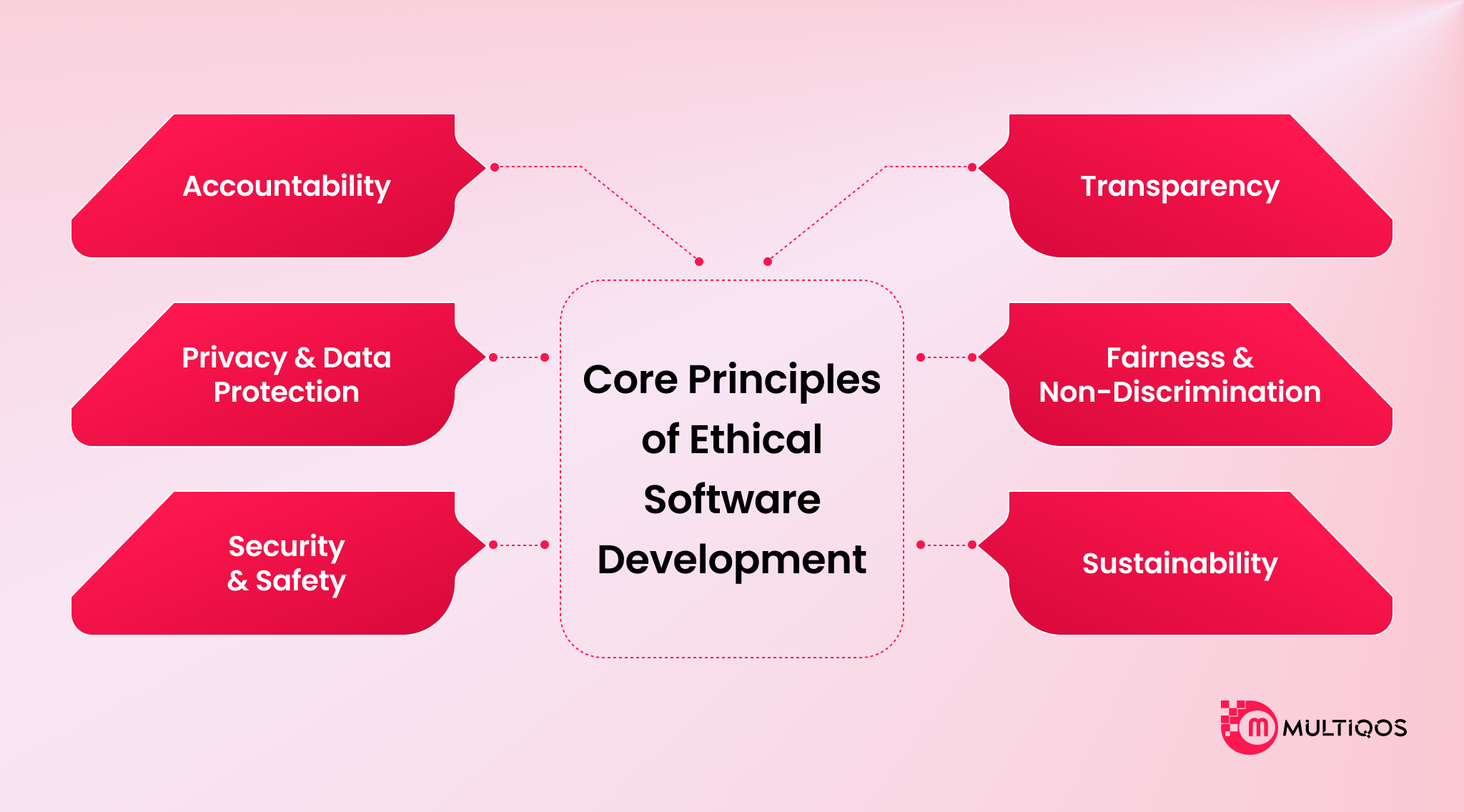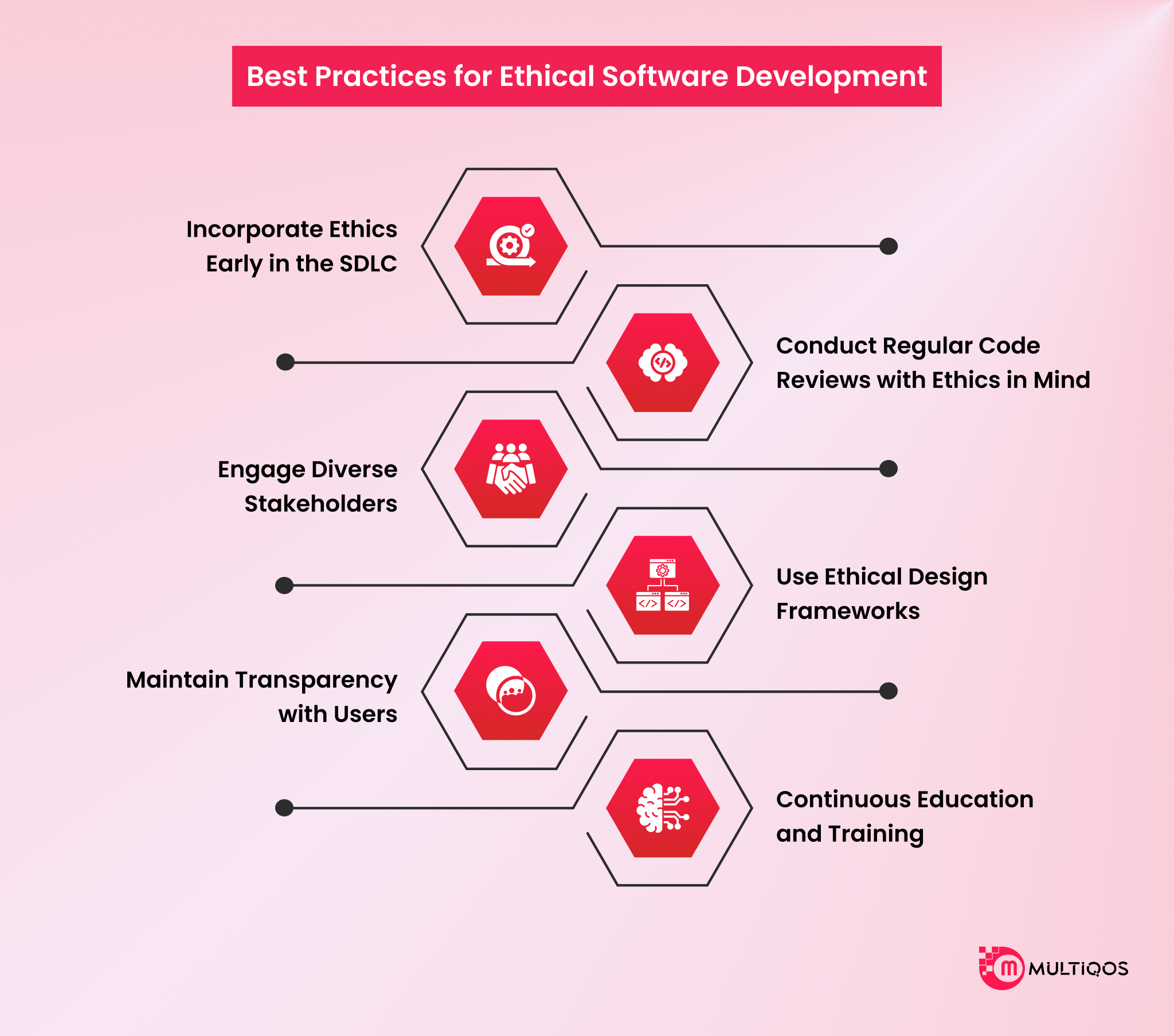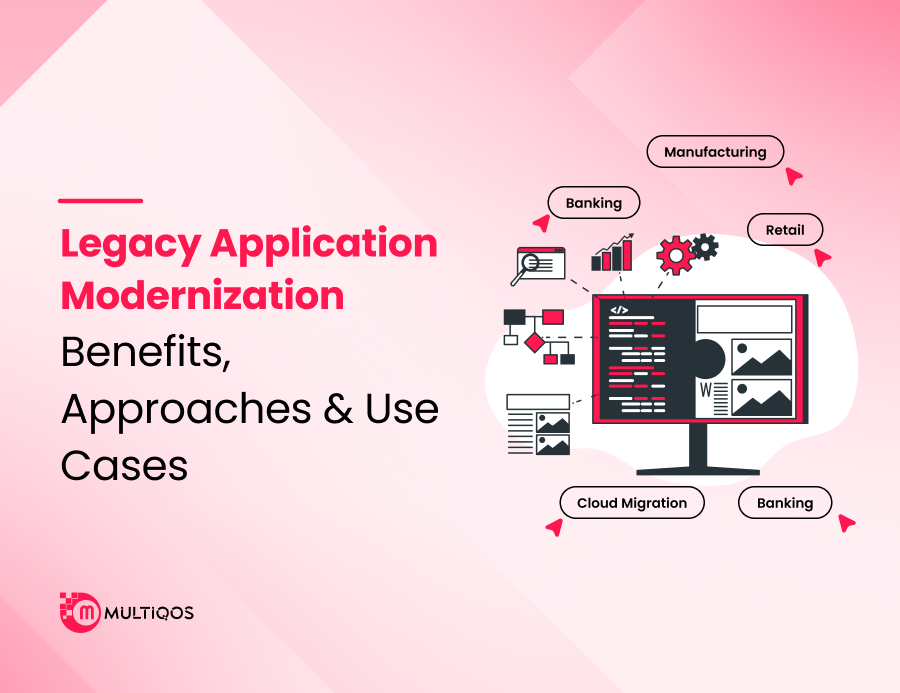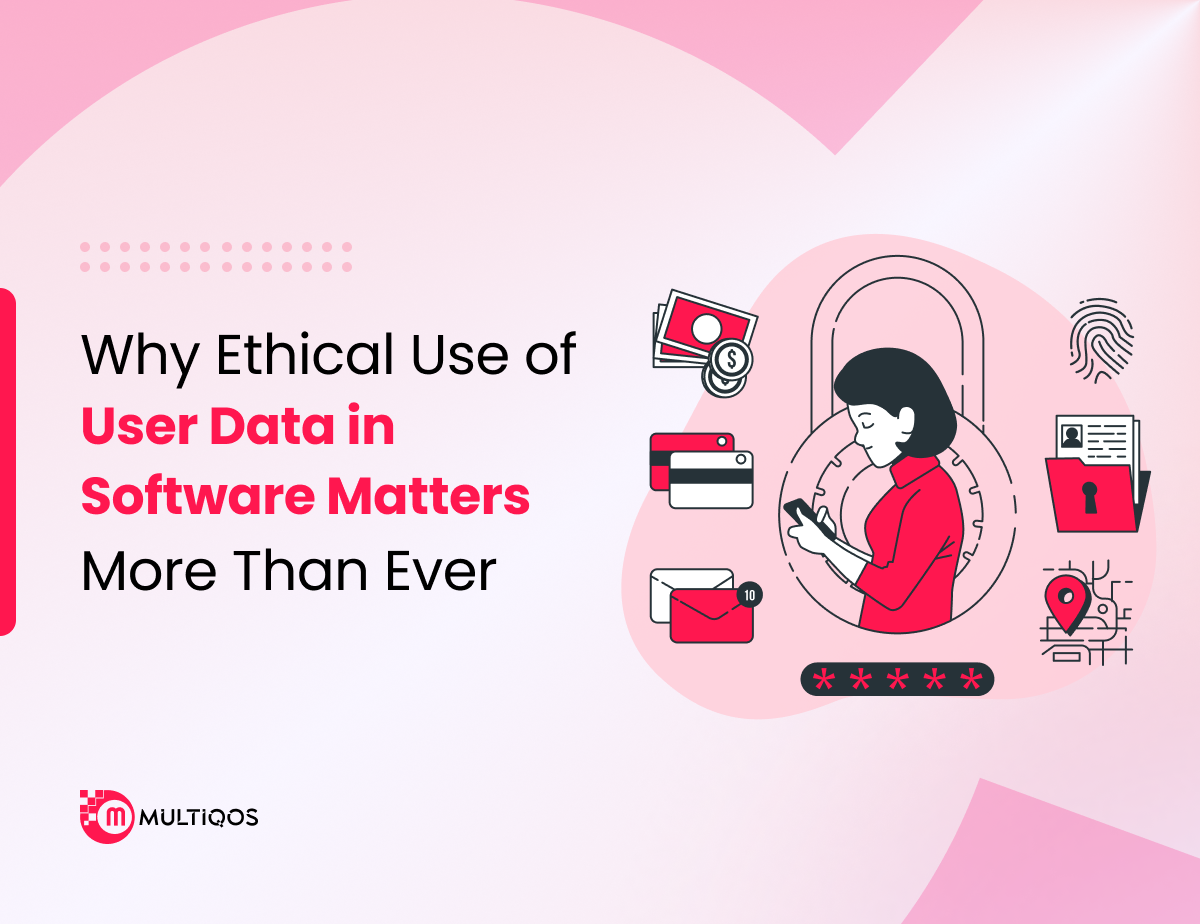Principles and Best Practices for Ethical Software Development
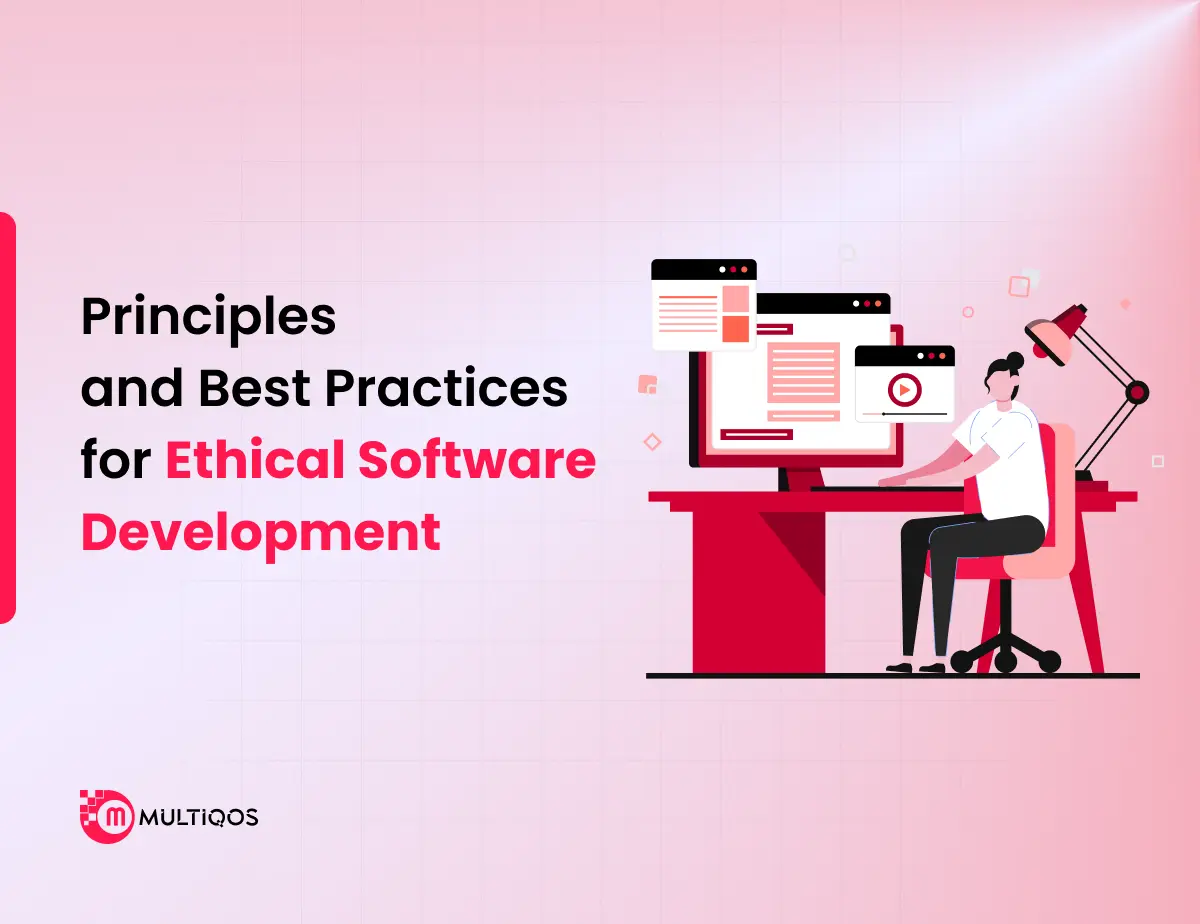
Summary :
Ethical software development is no longer optional; it’s essential. As technology continues to shape every aspect of our lives, the decisions developers make can have far-reaching consequences, both intended and unintended.
Issues like data privacy, algorithmic bias, manipulative design patterns, and the environmental impact of code have moved to the forefront of public and professional concern. Modern developers are no longer just builders of software; they are stewards of trust, fairness, and accountability.
This blog explores the core principles and best practices that define ethical software development in real-world contexts. From adopting transparency and privacy-by-design to fostering inclusivity and sustainability, you’ll learn actionable ways to ensure your software is not only high-performing but also socially responsible, secure, and user-respecting.
Introduction
In the world driven by software, the options that developers make have never been more important, or more visible. Ethical software development is outside of writing clean code or meeting business requirements. It is intended to make value-operated decisions that protect users, promote justice, and assess long-term impact on individuals and society.
As a concern for data privacy, algorithm bias, digital manipulation, and environmental stability, developers are called not only as engineers, but also to act as ethical sellers of technology. This blog examines the basic principles and best practices for ethical software development.
Whether you are a solo developer, part of a growing startup, or working in a large technical organization, this guide will help you think more seriously about the software you create and how to make it responsible.
Understanding Ethics in Software Development
When software quickly becomes embedded in our daily lives, the ethical thinking of development is becoming increasingly important. Ethics in software development refers to values and principles that are ethically related and that control the process of how software is developed and maintained.
This basically includes respecting the privacy of users, ensuring data security, preventing algorithm bias, and designing a responsive interface. Developers not only write code; They form user behavior, affect decisions, and influence society. For companies that offer software development services, it is necessary to establish ethical standards in the workflow.
It is not just about providing a functional product; It is about creating solutions that are fair, transparent, and responsible. As the final user and regulatory bodies are more concerned with how technology affects individuals and communities, companies that prefer ethical development will gain a competitive advantage, build trust, reduce the risk, and contribute to a more responsible digital future.
Core Principles of Ethical Software Development
Ethics is at the heart of each software project. Here are the main principles that guide responsible and impressive development:
1. Accountability
Developers should take responsibility for the results of their code, including unexpected results. Ethical decisions should be owned and traceable.
2. Transparency
Be open about how the software works, especially about data usage and algorithm decisions. Clear communication creates confidence with users.
3. Privacy & Data Protection
Users are our main focus, so it should be our concern to respect their privacy. For this, you should follow the principles of privacy-for-design from the initial stages, collect minimal data, and protect it.
4. Fairness & Non-Discrimination
Avoid bias in code and the dataset. Make sure the software behaves properly for all users regardless of background or identity.
5. Security & Safety
Protect users from harm by building secure systems. Test for regular weaknesses and answer responsibly to threats.
6. Sustainability
Consider the environmental and long-term impact of your software. Optimize for energy efficiency and responsible resource use.
Best Practices for Ethical Software Development
Creating responsive, visually appealing, and user-focused digital products requires more than just code. These expanded best practices will help teams and organizations that really guide ethical software development, which give importance to user rights, social influences, and long-term trust.
1. Incorporate Ethics Early in the SDLC
Ethical concerns should be addressed correctly from the beginning, not in the end. Begin by identifying ethical risks during the planning and design stages to gather the requirements of SDLC. Think of users’ privacy, data collection guidelines, fairness in algorithms, and what can be excluded or damaged by your software. Integrating these ideas quickly provides the basis for ethical software development and prevents expensive modifications later.
2. Conduct Regular Code Reviews with Ethics in Mind
While the code assessment usually focuses on functionality and performance, it should also include ethical probes. Evaluations about the code can introduce bias, the user can invade privacy, or create misleading functionality. For example, are there any dark patterns? Do user permits handle transparent? This mentality makes sure that ethical software development is maintained and updated through each release.
3. Engage Diverse Stakeholders
When it comes to decision-making in ethical software development, diversity is the key. It incorporates stakeholders from assorted backgrounds, allowing the exposure of possible blind spots and bias in your software that need to be taken care of. So, if you are creating a customer app with simple features or a full-fledged business tool, ethical software development depends on input from those who will affect your product. Their response ensures a more inclusive, balanced, and responsible end product.
4. Use Ethical Design Frameworks
Frameworks such as design, human-focused design, and explainable AI offer practical methods for direct ethical software development. They help the frame teams create system-centered, privacy, and optimal systems. This is especially important during complex software integration for business, where legal compliance, data management, and transparency must be adapted to platforms and departments.
5. Maintain Transparency with Users
Be honest with the users about how your software works. Whether you operate algorithms, gather data, or personalize experiences based on users’ expectations, users should always know what is happening behind the scenes.
Ethical software development highly depends on users’ trust, and it can only be improved or gained when users feel respected and informed all the time. Always provide clear privacy settings, disclosure of data usage, and service status in regular language.
6. Continuous Education and Training
Technology develops rapidly, and therefore, its ethical implications. Developers, designers, and project managers should be informed of new ethical challenges, industry standards, and new rules. Participate in ethical-focused technical programs and encourage certificates in safe and responsible development. A strong learning culture confirms an obligation for ethical software development throughout your team.
Conclusion
If you are still here, you must be aware that ethical software development is a requirement, not an alternative, that can be ignored. By using principles such as privacy and transparency, developers can build software that works exceptionally well and promotes confidence in creating positive effects on users.
Therefore, if you are planning to develop your future products or want to hire software developers, be sure to maintain ethical standards in the first stages of development. Having the right team of developers on your behalf can be advantageous because they are not only experts in coding, but are also concerned with development techniques that respect users’ requirements.
FAQs
Ethical practices help prevent harmful consequences such as data violations, biased algorithms, and manipulated user interfaces. Ethical development also provides user confidence and supports long-lasting stability.
- Data privacy violations
- Algorithmic bias and discrimination
- Use of dark patterns
- Lack of accessibility
- Ignoring environmental impact
By incorporating the reviews of morality during the planning stages, using inclusive design principles, organizing regular security audits, and following the privacy-by-design and transparency structure during the process of forming software.
- Secure and privacy-conscious coding
- Avoiding bias in data and algorithms
- Transparent communication with users
- Accessibility for all user groups
- Continuous ethical training for teams
Get In Touch


